Ministry of Natural Resources and Environment proposes 3 methods for land valuation
The Ministry of Natural Resources and Environment said that this agency has just sent an official dispatch to the Ministry of Justice requesting appraisal of the Decree amending and supplementing a number of articles of Decree No. 44/2014/ND-CP on land prices and Decree No. 10/2023/ND-CP on amending and supplementing a number of articles of the decrees guiding the implementation of the Land Law.
Notably, in the content of the draft Decree, the Ministry of Natural Resources and Environment (MONRE) proposed to amend and supplement the land valuation method in the direction of regulating 3 land valuation methods, including: comparison method, income method; land price adjustment coefficient method.
Thus, compared with Decree No. 44/2014/ND-CP, the draft Decree has reduced 2 land valuation methods. Specifically, it integrates the deduction method into the comparison method and does not use the surplus method to value land.
Explaining this, the Ministry of Natural Resources and Environment's report stated that the surplus method is a method of land valuation by calculating the total assumed development revenue of the property minus the total assumed development cost.
Accordingly, the calculation of the total assumed development revenue of real estate must be based on: Transfer price, rental price, sales time, sales rate, trends and fluctuations of transfer price, future rental price, occupancy rate... and must discount the cash flow to the valuation time according to the bank's lending interest rate; the calculation of the total assumed development cost of real estate, in addition to being based on the norms and unit prices issued by competent state agencies, also depends on the construction time, construction rate by year, contingency costs, interest costs, investor profits taking into account risk factors, advertising costs, sales...
According to the Ministry of Natural Resources and Environment, the calculation of the above-mentioned assumed factors of total development revenue and total development costs is very complicated, the valuation results are uncertain, inaccurate, and have large errors (for the same plot of land, just changing one indicator in the assumed factors will change the valuation results), and is easily exploited and poses risks to land valuation workers and those who decide on specific land prices in localities. This is the main cause of difficulties and delays in determining, appraising, and making specific decisions in the past.
On the other hand, in real estate business, land always exists first, and its price is determined before the process of creating real estate, so it is inappropriate to assume to estimate the value of real estate in the future and then determine the land price, causing the land price to depend on the real estate business method of the investor, not reflecting the true market value of the land.
According to the spirit of Resolution 18-NQ/TW, the method of determining land prices must ensure compliance with market principles. Therefore, the draft Decree does not apply the surplus method to determine land prices to calculate the financial obligations of land users and compensation when the State reclaims land, which is consistent with the Party's policy.
The submission of the Ministry of Natural Resources and Environment clearly stated that, in order to overcome the limitations when not applying the surplus method, the draft Decree has amended and supplemented the content of the comparison method, in which it guides the valuation of land plots and land areas that have not been invested in technical infrastructure on the basis of combining the deduction technique to deduct the cost of technical infrastructure investment, and at the same time, it is supplemented with the regulation that when determining land prices, the annual adjustment coefficient method must be applied for comparison and verification to ensure the accuracy of land valuation results.
"The regulation of 3 land valuation methods (comparative, income, land price adjustment coefficient) has ensured coverage of all land valuation cases serving state management of land," stated the Ministry of Natural Resources and Environment's submission.
Many opinions worry about project "blockage" if the surplus method for land valuation is abandoned.
Many opinions are concerned that if the surplus method is abandoned, it may make it difficult for projects to value land, causing congestion.
According to the Ho Chi Minh City Real Estate Association, recently, up to 87% of projects in the city have been valued using the surplus method.
"The surplus method is a scientific and internationally recognized method of land valuation. We strongly recommend that the Ministry of Natural Resources and Environment and the Government maintain the surplus method for land valuation," proposed Mr. Le Hoang Chau - Chairman of the Ho Chi Minh City Real Estate Association.
The representative of the Vietnam Valuation Association said that the surplus method is suitable for land valuation of new development investment projects. Other valuation methods are not eligible for application. If abandoned, it could make it difficult to value land for projects, causing congestion.
"Each method is suitable for different types. For example, the comparison and income methods are used to determine land prices for current use. The surplus method is used to determine land prices for future use. It is impossible to apply the current land price determination method to the future. In the market, not all projects have similar or similar assets to apply the comparison method. If the surplus method is abandoned, determining land prices for development projects will be very difficult," said Mr. Nguyen Tien Thoa, Chairman of the Vietnam Valuation Association.
According to reports from localities, the supply of new housing projects in the first 6 months of this year has continuously decreased sharply. The main reason is due to legal problems, including land valuation. Enterprises believe that the Prime Minister's dispatch on removing difficulties in land valuation is an important basis for the Ministry of Natural Resources and Environment and localities to review and reconsider the system of related legal documents, especially land valuation methods, to have synchronous adjustments that are most suitable for the market.
Based on the opinions of businesses and associations, the Vietnam Federation of Commerce and Industry (VCCI) also shares the view that eliminating the surplus method makes land valuation difficult.
VCCI emphasized that the comparison method has limitations in terms of comparative data, because transaction information is often difficult to match with the real estate to be valued; requiring a lot of clear and accurate transaction information, while in reality, the transaction price on paper and the actual transaction price are often not the same. The land price adjustment coefficient method also has similar limitations, based on comparative data, also facing shortcomings in terms of information and input data.
VCCI also believes that the surplus method is one of the real estate valuation methods applied by professional valuation organizations, especially when valuing land with development potential. This means that the land value has been calculated to achieve the best and most effective use, in accordance with market principles. The removal of the surplus method in the draft may cause inconsistency in legal documents related to real estate valuation. With the goal of state management, retaining the surplus method in the land valuation method proposed by VCCI, the removal of the surplus method may cause difficulties in the implementation of land valuation.
TM
Source


![[Photo] More than 17,000 candidates participate in the 2025 SPT Competency Assessment Test of Hanoi National University of Education](https://vphoto.vietnam.vn/thumb/1200x675/vietnam/resource/IMAGE/2025/5/17/e538d9a1636c407cbb211b314e6303fd)
![[Photo] Nearly 3,000 students moved by stories about soldiers](https://vphoto.vietnam.vn/thumb/1200x675/vietnam/resource/IMAGE/2025/5/17/21da57c8241e42438b423eaa37215e0e)
![[Photo] Readers line up to visit the photo exhibition and receive a special publication commemorating the 135th birthday of President Ho Chi Minh at Nhan Dan Newspaper](https://vphoto.vietnam.vn/thumb/1200x675/vietnam/resource/IMAGE/2025/5/17/85b3197fc6bd43e6a9ee4db15101005b)

![[Photo] Prime Minister Pham Minh Chinh chairs meeting on science and technology development](https://vphoto.vietnam.vn/thumb/1200x675/vietnam/resource/IMAGE/2025/5/17/ae80dd74c384439789b12013c738a045)



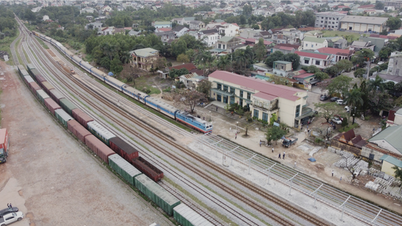
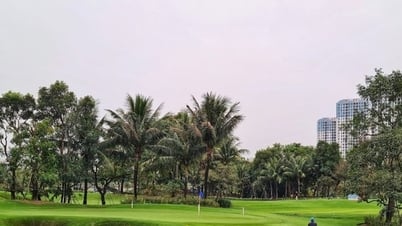
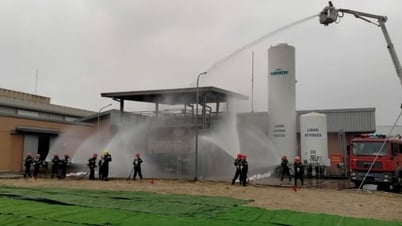

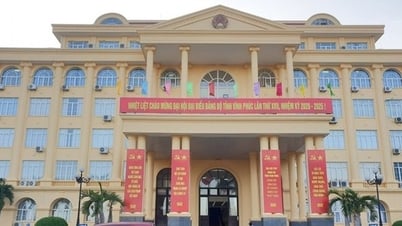






































































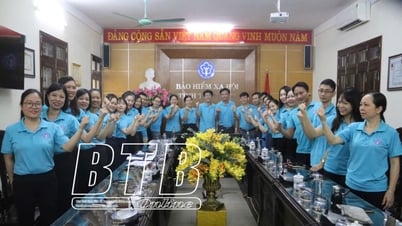














Comment (0)